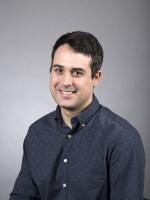A recent webinar brought together leaders of three Capital Region hospitals to look back on the last few months during the pandemic and to look ahead to a changed way of doing business.
In a forum organized by the Albany Business Review, the heads of Albany Medical Center, St. Peter’s Health Partners, and Ellis Medicine discussed the financial impact of the coronavirus pandemic.
Elective surgeries, a source of revenue for hospitals, were restricted for months during the height of the pandemic in New York.
“We took between a 30 to 40 percent hit to all of our activities.”
Albany Med CEO Dr. Dennis McKenna said the hospital has seen a $56 million operating loss.
“But that’s both a combination of drop-off in activity, as well as the increased expense of running a testing tent and getting additional PPE’s and having to change the way in which we use plexiglass in our different clinics, and all the other expenses that were not anticipated before the pandemic,” said McKenna.
St. Peter’s President and CEO Dr. James Reed said his hospital took a $40 million loss. Things have not yet bounced back to 100 percent.
“If you look at our surgery, our inpatient surgery at our hospitals, is running anywhere 85 to 90 percent of its pre-COVID levels. And the ER is coming back as well. The outpatient surgery that got hit so hard, that elective surgery, has come back up and is probably, like, maybe 50 percent of the level of what it is. But the losses are not over yet. We’re not out of the woods at all,” said Reed.
Ellis Medicine President and CEO Paul Milton said Ellis took a $50 million hit.
“If I look at the end of May, we were probably half our surgery, is probably getting back to 75 percent in the first couple weeks in June. And it will take a couple, maybe another couple weeks or a month, to get, hopefully, closer to back to where we were,” said Milton.
All CEOs are hopeful for federal aid to help close the revenue gap. They also back a provision in the HEROES Act championed by Democratic Representative Paul Tonko that would provide a $100 million annual boost in federal funding to five Capital Region hospitals by adjusting the Medicare Wage Index.
The CEOs discussed the effect that community support has had on hospital workers. Dr. Reed mention the signs outside St. Peter’s thanking frontline workers.
“Schoolkids putting cards, coloring cards and things to send in to the staff. And that actually, that community support…talking with frontline staff, had tremendous emotional impact on them, to know that the community was definitely there. From the kids, to the adults, to the business leaders,” said Reed.
On Tuesday, Governor Andrew Cuomo announced that hospitals and group homes can now accept visitors.
While visitation was restricted over the last three months, Dr. McKenna said students at Albany Medical College worked to bring visitors to patients virtually.
“Our medical students would go to the floor with iPads and they would help people connect with family members remotely. Which is not the same thing as holding their hand, but it is certainly helpful. And I’ve heard many stories about end of life issues – from people from New York City, as example – who wouldn’t have had the opportunity to connect with a loved one were not for the fact that there some technological opportunities,” said McKenna.
Paul Milton said the visitation restrictions were difficult for patients, but also said there was a silver lining to not having visitors in the hallways.
“Many of the staff have felt somewhat more focused on what they need to do to provide good quality care with not as many visitors around. So there’s a discussion right now about what’s the right balance,” said Milton.
The hospitals are also embracing telemedicine, whether on tablet or the telephone.
“We are all on in telemedicine and we’re looking at ways to roll that out in our practice, as well as in our urgent care models, etc. But I think we need to do it in a thoughtful way,” said McKenna.







